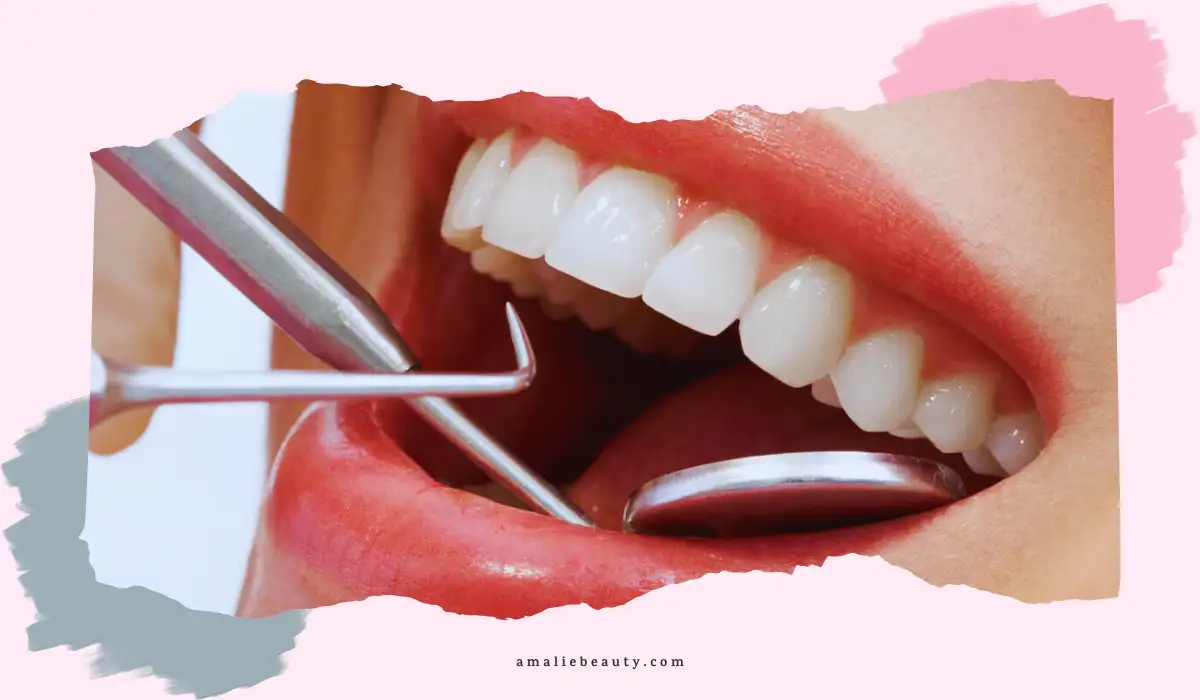Your smile is your signature that comes from those shiny, white, pearly teeth. The better your teeth look, the brighter your smile becomes.
But did you know that it may take more than just brushing and flossing for whiter and healthier teeth? Yes, the world of dental care involves “Deep Cleaning”, a procedure that involves cleaning, scaling, and polishing the teeth.
A deep dental cleaning is similar to an in-depth cleaning of teeth and gums; however, it is more professional. This procedure isn’t something you can do at home and must be performed by a dental hygienist or dentist in a professional setup.
Let’s dive into the world of dentistry and find out, “Is A Deep Clean Good For Your Teeth?”
What Does Deep Teeth Cleaning Involve?

A deep teeth cleaning is a dental procedure that involves the removal of plaque and tartar buildup and thorough cleaning from difficult-to-reach nooks and corners of teeth and gums. Here’s a step-by-step guide explaining all that this procedure involves:
➡️ Initial Assessment
The process begins with thoroughly examining teeth and gums, along with assessing plaque and tartar buildup. The dentist may also check gum health.
➡️ Scaling
After assessment, the dentist will remove plaque and tartar buildup from the teeth’s surface and below the gumline. This process helps clean the buildup that regular brushing and flossing cannot, and it is known as scaling.
➡️ Root Planning
The dentist may now use tools to smoothen the surface of tooth roots. This process is known as root planning and helps discourage the further accumulation of plaque and tartar buildup. However, the process is optional and only performed if signs of gum disease/ or the roots are affected.
➡️ Antibacterial Rinse
The dentist will now assist with an antibacterial/antimicrobial rinse to kill the remaining bacteria and promote healing. This step is extremely crucial.
➡️ Fluoride Treatment
Based on the oral health requirement, the dentist may follow up with a fluoride treatment to strengthen teeth and prevent tooth decay.
➡️ During and Post-Deep Cleaning Expectations
During the deep teeth cleaning procedure, mainly while removing tartar and plaque buildup, it is expected that you will experience some discomfort. In case of heavy buildup, the dentist may use local anesthesia right before the procedure to minimize pain and discomfort.
Besides that, it is expected to experience gum sensitivity and mild bleeding, particularly if you have gingivitis or any advanced gum disease. However, as the gums heal, the bleeding must subside.
Right after the procedure, the teeth and gums may become temperature sensitive. However, it is temporary and is manageable with a desensitizing toothpaste.
Further, after the procedure, once the gums start healing, you may feel tighter around the teeth. This is a positive sign of healing.
Is a Deep Cleaning Good for your teeth? Is it Necessary?
Deep Cleaning, also known as “Scaling or Root Planning” in the dental world, benefits your teeth. However, this procedure goes beyond regular teeth and gum cleaning; a dentist would only recommend it when there’s significant buildup.
Although beneficial, a deep cleaning isn’t always necessary for teeth. It becomes particularly important when visible tartar or plaque buildup occurs; pockets form between teeth and gums, gums bleed, and other signs.
While not everyone might need deep teeth cleaning, it is essential to follow your dentist’s advice.
How often is a deep teeth cleaning needed?
The frequency of dental scaling may vary depending on every individual’s oral health. For individuals with healthier teeth and gums and the right cleaning/hygiene practices, deep cleaning may be recommended once every year or for two years.
In contrast, individuals who are prone to plaque and tartar buildup and have a history of gum disease might need it every six months.
However, there isn’t a general rule, and a dentist can recommend the appropriate schedule based on your oral health status.
List of Benefits
- It removes plaque and tartar buildup and leaves teeth and gums deeply cleaned.
- It reduces the risk of infections and may prevent early signs of cavities.
- It stops the progression of gum disease, preventing it from getting advanced or severe.
- Cleaning promotes overall oral health and prevents complications by addressing any underlying issues.
- It reduces swelling and tenderness and thus eases gum inflammation.
- It prevents tooth decay by preserving the integrity of teeth.
Side Effects
- Some individuals may experience mild discomfort and pain during the procedure, particularly while scaling.
- The process may make teeth sensitive to hot and cold temperatures for some time.
- It is common to experience gum bleeding, mainly if there’s an existing condition of gum disease.
- Swelling in the gums is a natural response to the treatment.
- Temporary numbness or discomfort with local anesthesia’s effect.
However, deep cleaning is a healthy procedure for teeth, and all the side effects are temporary and a part of the healing process. However, the above signs may subside on their own; if they do not, consult your dentist immediately.
Post Deep Cleaning Care
Once done with a deep teeth cleaning procedure, follow these aftercare tips:
- Use a soft toothbrush and brush gently for some time to avoid irritation. Avoid areas that were heavily treated while cleaning.
- Use desensitizing toothpaste for a while to manage temporary teeth sensitivity.
- To reduce inflammation and promote healing, rinse your mouth with salt water (lukewarm) a few times daily.
- Avoid eating hard or crunchy food for a few days.
- Avoid eating anything too hot or too cold for a while.
- Drink plenty of water to flush out bacteria and promote healing.
- Stay from smoking as it could impede your healing procedure.
- Take medications or antibiotic/ antimicrobial rinses as prescribed by the dentist.
- Keep a follow-up with your dentist.
Conclusion
In the urge to maintain clean, sparkly, and healthy teeth, a deep dental cleaning “Scaling” may provide valuable help. A deep cleaning is undoubtedly good for your teeth as long as your oral health requires the same.
This proactive step ensures not only cleanliness and hygiene but also dental longevity. Although a common and safe procedure, expect some sensitivity afterward, which will subside on its own. For a personalized recommendation, it is essential to consult a dentist (in physical)

